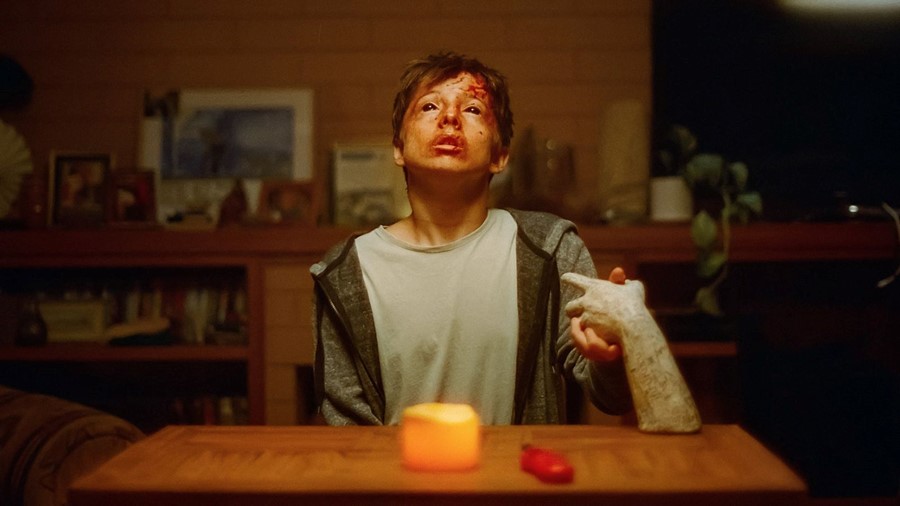From Edward Lovelace’s moving portrait of a deaf Kurdish child to a new Netflix documentary on Wham!, here are the films to add to your watchlist this month
Name Me Lawand
There have been plenty of films aimed at pricking consciences on the European migrant crisis of late, but few with the transporting power of Name Me Lawand, Edward Lovelace’s documentary told through the eyes of a deaf Kurdish child as his family attempt to make a new life for themselves in Derby.
Shooting his film over a four-year period, Lovelace learned British Sign Language to better get to know his subject, a charismatic young boy with a mop of ebony curls and a dimpled smile that would make him the envy of many a leading man. It’s a remarkable feat of filmmaking – shot, lit and edited like a Terrence Malick movie – with long scenes unfolding in near silence as Lawand tells his story through sign.
Lawand has been deaf since birth and was written off by doctors in Iraq who said he would never be able to communicate. His first encounter with another deaf person came at a Dunkirk migrant camp, where a volunteer helped him enrol at the Royal School for the Deaf. As he begins learning BSL, we witness Lawand’s joy at being able to convey his vivid interior life for the first time – and that’s when the Home Office get in touch to say they’re investigating the family’s case. “We thought our journey was at an end,” says his mother ominously. “In fact, it was just beginning.”
Critics may argue that, in focusing on the fortunes of one family, the film advances ‘good migrant’ narratives that undermine the fight for refugee rights. But to have swamped us with context on the government’s ever-more draconian ‘hostile environment’ policies would have broken the delicate spell it conjures; besides, there’s more than one way to illustrate the British political classes’ moral abdication on the issue of migration. Towards the end of Lovelace’s film, the fate of the family hangs on a single performance at a school play, where home office reps have been sent to assess Lawand’s progress as the basis for their leave to remain. It’s a powerful image of the system’s cruelty, what should be an occasion for joy and familial pride turned into a potentially traumatising event for a boy less than ten years old. But in the end it’s Lawand’s spirit that shines through in this moving portrait of human potential fulfilled.
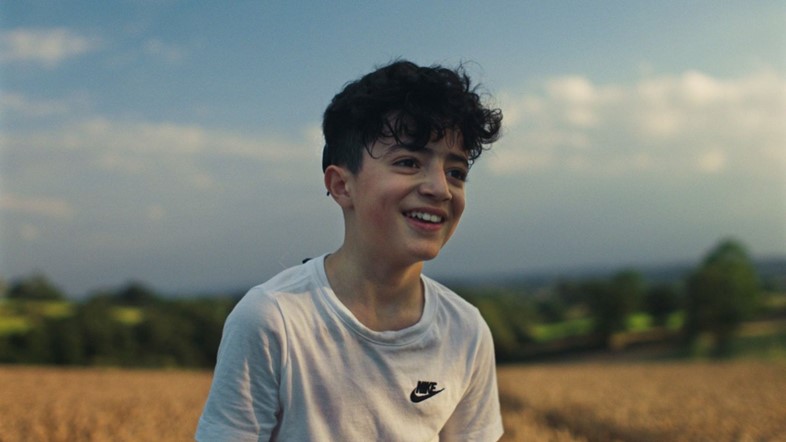
Talk to Me (lead image)
It’s no secret that characters in horror films act strangely in the face of life-threatening danger, but man, do the characters in Talk to Me bite down hard on the cliche. Danny and Michael Philippou’s possession horror works best when it leans into the inherent hokiness of its premise – about a bunch of kids who invite spirits into their bodies with a plaster-cast model of a dead clairvoyant’s hand – and we do get one great scene where the teens take it in turns to get possessed while filming each other on their smartphones. (“Yo, this spirit is a cunt!” laughs one.) Alas, the lols soon abate when things take a turn for the gratuitously nasty, and we are left to ponder what might have been if they’d run with a more comic-book, Sam Raimi-esque take on the material. Instead, what follows seems confused about what it wants to be: popcorn horror? Grim shocker? Or something in the consciously arty mould made popular by its backers, A24? By the time we learn the kids got the hand – from a guy who’d stabbed himself in the face after trying to kill his brother, of course – you may struggle to care.
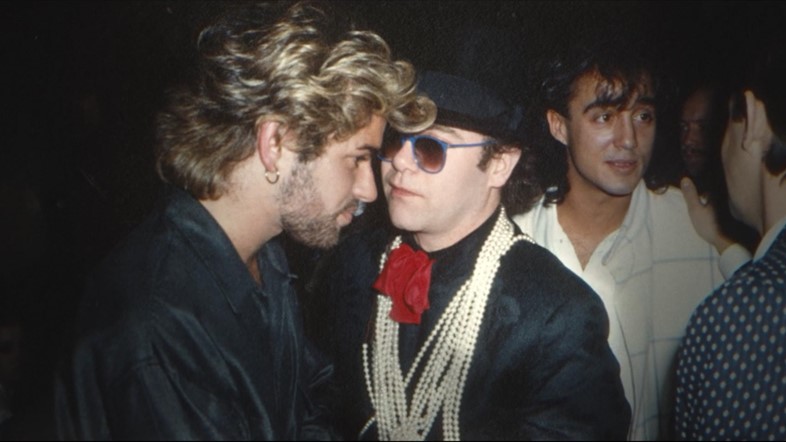
Wham!
Now he’s remembered as one of the greatest pop stars Britain has produced, it’s easy to forget there was a time when the late George Michael was looked on as a bit of a chancer. The feeling among sniffier quarters of the British music press at the time Wham! blew up was one of, “How did these two idiots become so massive?”, as Andrew Ridgley puts it in a new documentary from Fyre director Chris Smith. But blow up they did, and it’s a pleasure to hear their story told here, Michael transforming before our eyes from chubby, sensitive shy-guy to the Greek God in budgie smugglers of the Club Tropicana video. In fact, Ridgley was the driving force behind much of Wham!’s early impetus, and his grace in recognising Michael’s blossoming talent – both then and now – is testament to their friendship. As for Michael, the story of his solo breakout hit Careless Whisper tells you everything you need to know about his own drive to succeed holding. Holding the single back for years to make the biggest possible impact, he even mustered up courage to tell legendary producer Jerry Wexler to whistle when the version he recorded at Muscle Shoals – where Aretha Franklin and Wilson Pickett made their names – wasn’t up to snuff. The rest, as they say, is history.
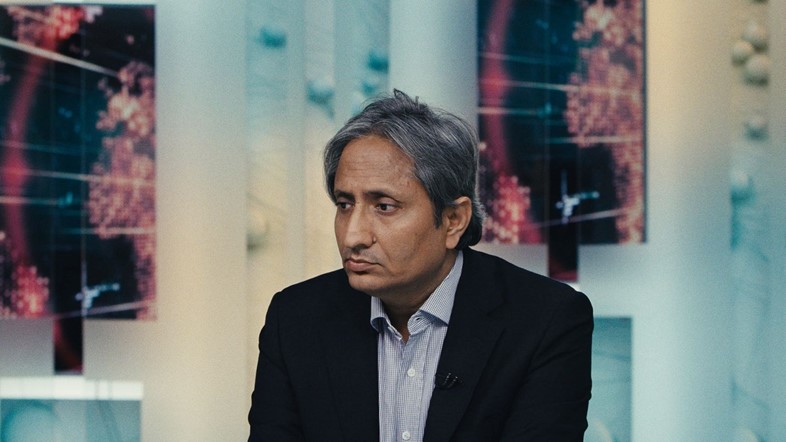
While We Watched
What’s it like to fight a battle that is already lost? It’s a question that stalks While We Watched, Vinay Shukla’s gripping documentary on Indian news journalist and campaigner for press freedom, Ravish Kumar. As the face of NDTV, Kumar is a fierce critic of Narendra Modi’s nationalist administration and an island of sanity in a country where most news channels make Fox News look like a paragon of sober-minded decency. NDTV takes a different approach and is boycotted by government for its troubles, but that’s just the tip of the iceberg as broadcasts are pulled off air without warning and reporters are intimidated into quitting their posts – there is a rueful running sight gag about leaving-do cakes being cut as the company struggles to retain its staff. Staring down the barrel of defeat, Kumar is forced to reckon with the existential notion of why we fight, in a film that finds hope in the bleakest of circumstances.
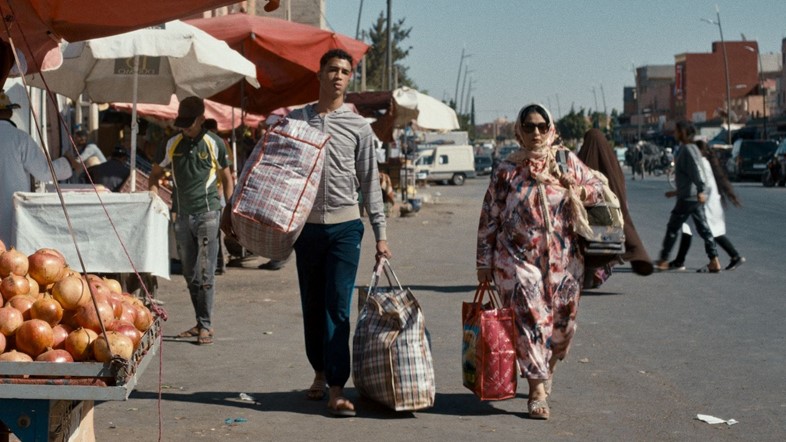
The Damned Don’t Cry
Fyzal Boulifa’s second film is a claustrophobic study of a mother-son relationship on the margins of Moroccan society, alert to the ways in which culture defines and delimits our horizons as people. It confirms the British director as an acute purveyor of small-‘p’ political cinema, boasting effective performances from its non-professional leads. Proud mum Fatima-Zahra (Aicha Tebbae) lives in a series of dingy one-room flats with her 17-year-old son, Selim (Abdellah El Hajjouji), while dreaming of a man who’ll indulge her worldly aspirations. The two are close, maybe too close, with a volatile relationship that seems to stem in part from their precarious lifestyle. When Selim learns the painful truth about his father, the pair make a fresh start in Tangier, where Selim takes a construction job working for a wealthy Frenchman, Sebastian (Antoine Reinartz), before being duped into a side-hustle that may or may not lead to revelations about his sexuality. Bouzal does a brilliant job with his first-time actors to bring this pair of doomed hustlers to life (Tebbae, in particular, brings a kind of wounded glamour to the role of Fatima-Zahra), producing a richly ambiguous work that raises questions about how to authentically ‘be’ in a society that rejects you at every turn.
